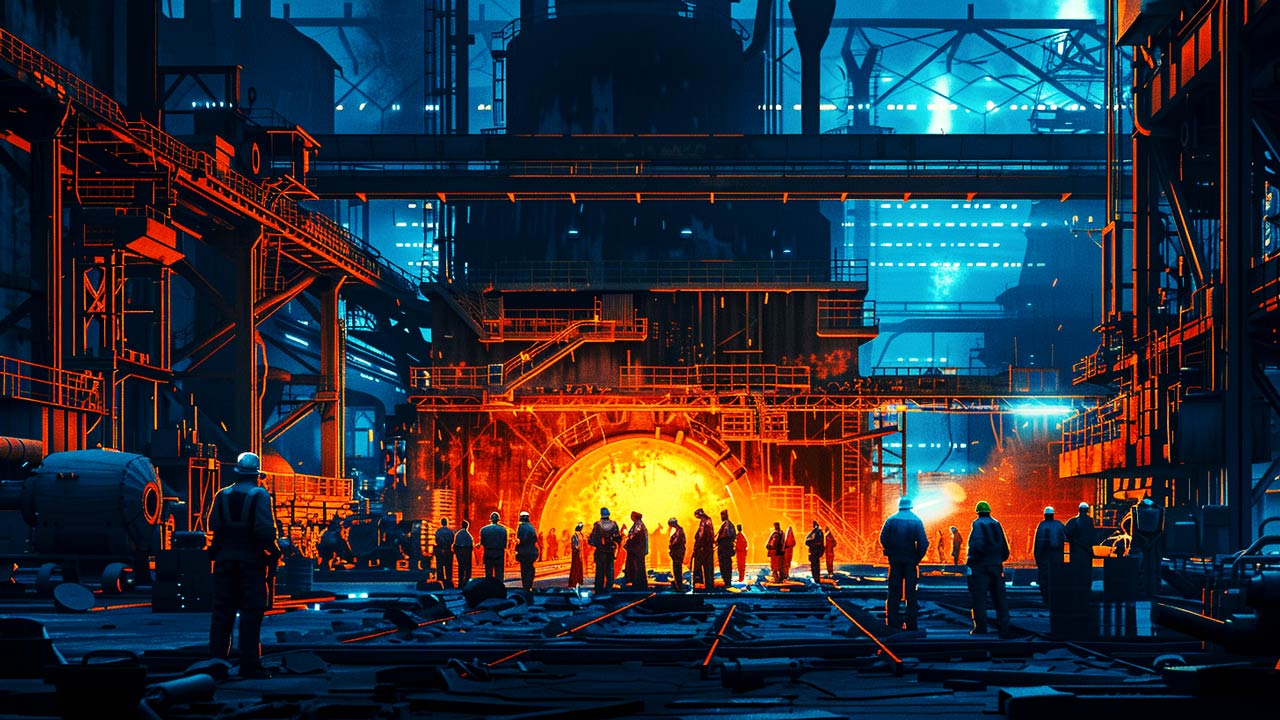Made in America: The Dark Forces Promoting American Manufacturing | SchiffGold

Whenever an election year rolls around, domestic manufacturing becomes a more central theme of discussion. Candidates from both sides, who seem to disagree on almost everything else, never waver in their commitment to auto manufacturers in Detroit and the steel industry. Republicans and Democrats never forget to remind the American public that they will try to keep these specific jobs on American soil. These very tangible and traditional markers of American industry seem to hold an outsize role in the American mind, especially considering that the steel industry, one of the most frequently mentioned industries, only employs 143,000 citizens.
Biden emphasizes the desire to keep American jobs, Trump leans into the fear of Chinese industrial encroachment. Regardless of the stated rationale, the idea that more manufacturing in America is good is constant. If this concept arose from the genuine conviction of America’s leaders it would be foolish yet permissible. The current institutional environment has created a situation that is driven by greed rather than genuine belief. Lobbyists of various industries have managed to gain a firm foothold in the minds of politicians, and there is no incentive for their influence to dissipate. The relatively small number of workers in each industry has created a negative cycle for the rest of the country where their inefficiency is often rewarded.
While the special interest groups of each industry effectively give themselves some additional immediate profits, they damage both the American public and themselves in the long run. Their deleterious effect on the American public is clearly displayed in how much more citizens have to pay for basic goods. The current average tariff on steel in America is 7.5%, meaning any industry involving steel must greatly increase its production costs. Consumers bear the brunt of this cost, as it directly and indirectly affects the prices of everything they purchase. Policies focused on the number of specific-industry jobs in the US market both harm US citizens and allow Chinese industry to thrive long term. While some tariffs harm Chinese manufacturing to some extent, it could also force them to increase efficiency to lower costs. Chinese producers could experiment with new technologies as a direct result of regulators’ attempts to limit their market. If these technologies succeed, American manufacturing jobs could be even more doomed than they were before. Just as tariffs promote foreign efficiency, they promote domestic laxity. The same industries that successfully lobbied for momentary protection from competition receive their punishment in technological and organizational stagnation. Succeeding in manufacturing requires constant adjustment and change to barely eke out profit in a world full of other firms trying to surpass each other. The government protection of tariffs gives firms a false sense of security that holds them back from their highest potential. If they are working with an artificial additional margin of 7.5%, they will lack the basic guideline of profit and loss. Firms will lack much of the incentive needed to promote technological change, and American manufacturing will not even have a fighting chance against Chinese innovation.
The massive negative effects of attempting to keep specific jobs on US soil will continue as long as industries with a relatively small number of employees continue to manipulate our institutions. This manipulation continues because our institutions fall victim to the dangers brought about by concentrated benefits and dispersed costs. The benefits of manufacturers’ lobbying are extremely concentrated. They directly benefit from whatever limits they can convince the government to enact on foreign trade. The increase in income from even a small tariff is so great that companies are willing to band together and invest heavily in lobbyists and special interest groups. This form of profit-seeking is rarely opposed because those bearing its costs are far too widespread, unorganized, and unmotivated to do anything about it. The American public pays for the folly of regulators and manufacturers. Every item becomes slightly more expensive than it would have been otherwise, yet the reason for the increase in price is rarely ever clear. Even if individuals could recognize the reason for the higher price of items, communication between all those affected would be exceedingly difficult.
Manufacturers are currently in a perfect short-term situation. They can sway policy as they wish because they know they will remain unopposed. America’s manufacturing capability will fall below its true potential as long as valuable resources are spent groveling before the Government for protection. The Government feeds into this negative cycle by acquiescing to the requests of the lobbyists. If industries believe there is little chance of success in pushing for a tariff, they will utilize more resources to develop technology rather than seek favor.
Call 1-888-GOLD-160 and speak with a Precious Metals Specialist today!








